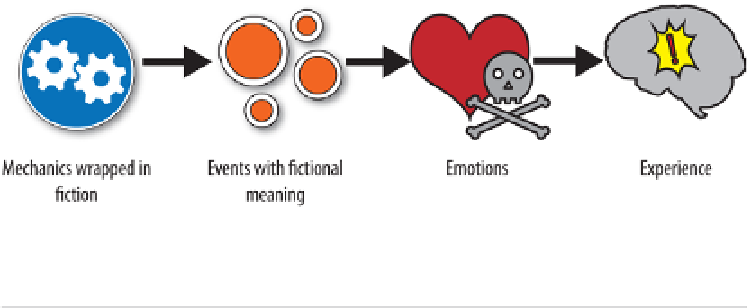Game Development Reference
In-Depth Information
Engines of Experience
The experience is the last link in the conceptual chain by which games
work. To recap: first, designers create a set of
mechanics
. They wrap these
mechanics in a layer of representative
iction
. During play, those mechan-
ics interact to produce a long sequence of
events
. Those events tickle trig-
gers in the player's unconscious mind, provoking
emotions
. Finally, those
emotions merge together into an integrated
experience
which lasts min-
utes, days, or years.
We also may have just stumbled on a definition for games.
A GAME is an artificial system for generating experiences.
Sometimes I think of games as a special kind of machine. Machines
are made of carefully designed metal shapes that fit together perfectly,
while games are made of carefully designed mechanics that fit together
perfectly. When used, a machine's parts move against one another in in-
tricate patterns, while game mechanics interact in specific complex ways.
The greatest fundamental difference between games and machines is in
the nature of that result that the system is supposed to create. Physical
machines are made to propel vehicles, heat houses, or assemble widgets.
Games are made to provoke emotion.
If you want a metaphor to use while thinking about games, don't
think of stories or movies. Those metaphors don't capture key aspects of
the power of games since they lack dynamic interaction between game
mechanics. They send us down the beaten path of predefined media ex-
periences, and away from the rich virgin land of on-the-fly, explorative,
generated interactivity.
Instead, think of a game as a strange kind of machine—an engine of
experience.

